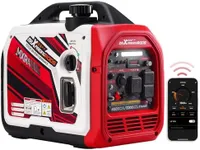Buying Guide for the Best Dual Fuel Inverter Generators
When choosing a dual-fuel inverter generator, it's important to consider your specific needs and how you plan to use the generator. Dual-fuel generators offer the flexibility of running on either gasoline or propane, which can be a significant advantage in various situations. Inverter technology ensures that the power output is stable and clean, making it safe for sensitive electronics. To make an informed decision, you should understand the key specifications and how they relate to your requirements.Power Output (Wattage)Power output, measured in watts, indicates how much electricity the generator can produce. This is crucial because it determines what appliances and devices you can run simultaneously. Generators typically have two wattage ratings: starting watts (surge watts) and running watts. Starting watts are higher and account for the initial power surge needed to start motor-driven appliances, while running watts are the continuous power the generator can supply. For light use, such as camping or tailgating, a generator with 1,000 to 2,000 running watts may suffice. For home backup or construction sites, you might need 3,000 to 7,000 running watts or more. Assess your power needs by listing the devices you plan to run and their wattage requirements.
Fuel Type and CapacityDual-fuel generators can run on either gasoline or propane, offering flexibility in fuel choice. Gasoline is widely available and provides higher power output, but it has a shorter shelf life and can be more volatile. Propane, on the other hand, burns cleaner, has a longer shelf life, and is safer to store. The fuel capacity of the generator's tank will determine how long it can run before needing a refill. For extended use, especially in emergencies, a larger fuel tank or the ability to connect to larger propane tanks can be beneficial. Consider your access to fuel sources and how long you need the generator to run without refueling.
PortabilityPortability is an important factor if you plan to move the generator frequently, such as for camping trips or job sites. This includes the generator's weight, size, and features like wheels and handles. Lightweight models (under 50 pounds) are easier to carry but may offer lower power output. Heavier models (over 100 pounds) often come with wheels and handles to facilitate movement. Consider how often and where you will transport the generator to determine the right balance between power output and portability.
Noise LevelNoise level, measured in decibels (dB), is an important consideration, especially if you plan to use the generator in a residential area or a campsite. Inverter generators are generally quieter than conventional generators. Noise levels can range from 50 dB (similar to a quiet conversation) to over 70 dB (equivalent to a vacuum cleaner). For camping or outdoor events, a quieter generator (under 60 dB) is preferable to avoid disturbing others. For construction sites or less noise-sensitive environments, a higher noise level may be acceptable.
Run TimeRun time refers to how long the generator can operate on a full tank of fuel at a specified load, usually 25% or 50% of its capacity. Longer run times mean fewer interruptions for refueling, which is particularly important during extended power outages or overnight use. Run times can vary widely, from a few hours to over 10 hours. Consider how long you need the generator to run continuously and choose a model that meets those needs without frequent refueling.
Outlets and ConnectivityThe number and types of outlets on a generator determine what devices you can connect. Common outlets include standard 120V household outlets, 240V outlets for larger appliances, and USB ports for charging electronics. Some models also offer RV-ready outlets or twist-lock outlets for secure connections. Ensure the generator has enough outlets and the right types for your intended use. For example, if you plan to power an RV, look for a model with an RV-ready outlet.
Safety FeaturesSafety features are crucial for protecting both the generator and the devices connected to it. Important safety features include overload protection, low-oil shutoff, and spark arrestors. Overload protection prevents the generator from being damaged by excessive loads. Low-oil shutoff automatically turns off the generator when oil levels are too low, preventing engine damage. Spark arrestors are essential for preventing fires, especially in wooded or dry areas. Choose a generator with robust safety features to ensure reliable and safe operation.



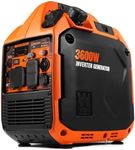
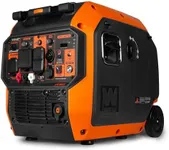

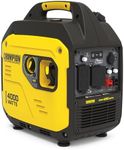
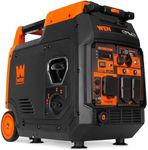
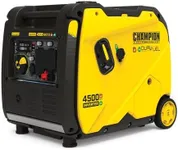



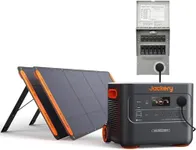
![[Upgraded Version] ALLPOWERS S2000 Portable Power Station 2000W (Peak 4000W) MPPT Solar Generator 1500Wh Backup Battery with 4 AC Outlets for Outdoor Camping RV Emergency Off-Grid](https://images-proxy.bestreviews.guide/RKciUpoEpXP6FG5NDwMBUKV-gKk=/0x150/https://m.media-amazon.com/images/I/51n9OTptdIL._AC_CX679_.jpg)
